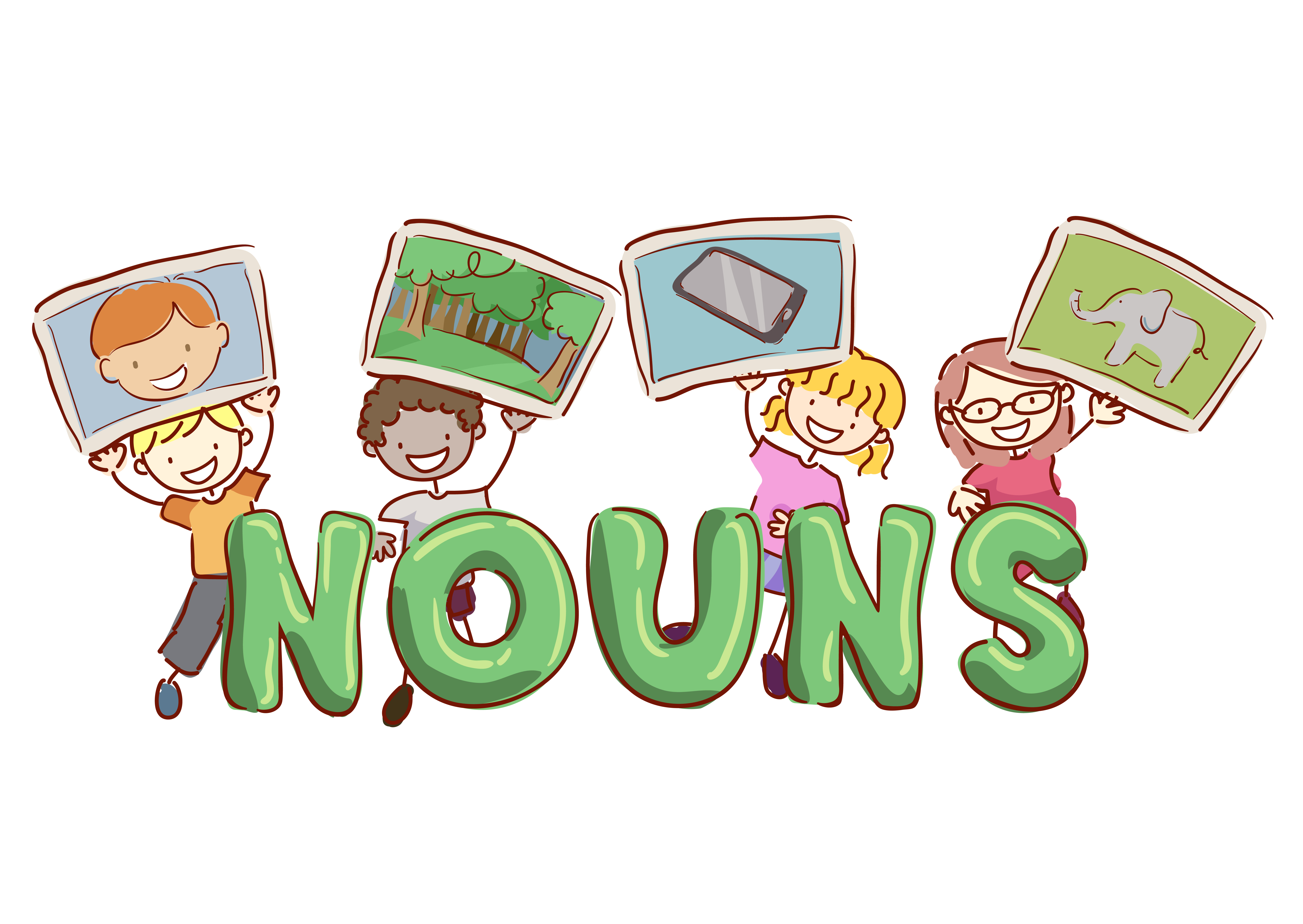Learning about ecosystems Worksheets for Ages 4-8
5 filtered results
-
From - To
Discover the wonders of ecosystems with our engaging worksheets designed for children ages 4-8! These printable activities encourage young learners to explore the interconnected world of plants, animals, and their habitats. Each worksheet is crafted to inspire curiosity and foster a love for nature, featuring vibrant illustrations and simple, age-appropriate tasks. Kids will enjoy learning about food chains, habitats, and environmental roles while developing essential skills in observation, critical thinking, and creativity. Perfect for home or classroom use, these resources provide an interactive way to nurture eco-consciousness in your little ones. Start their journey into the world of ecosystems today!


Pollinator Positions Worksheet
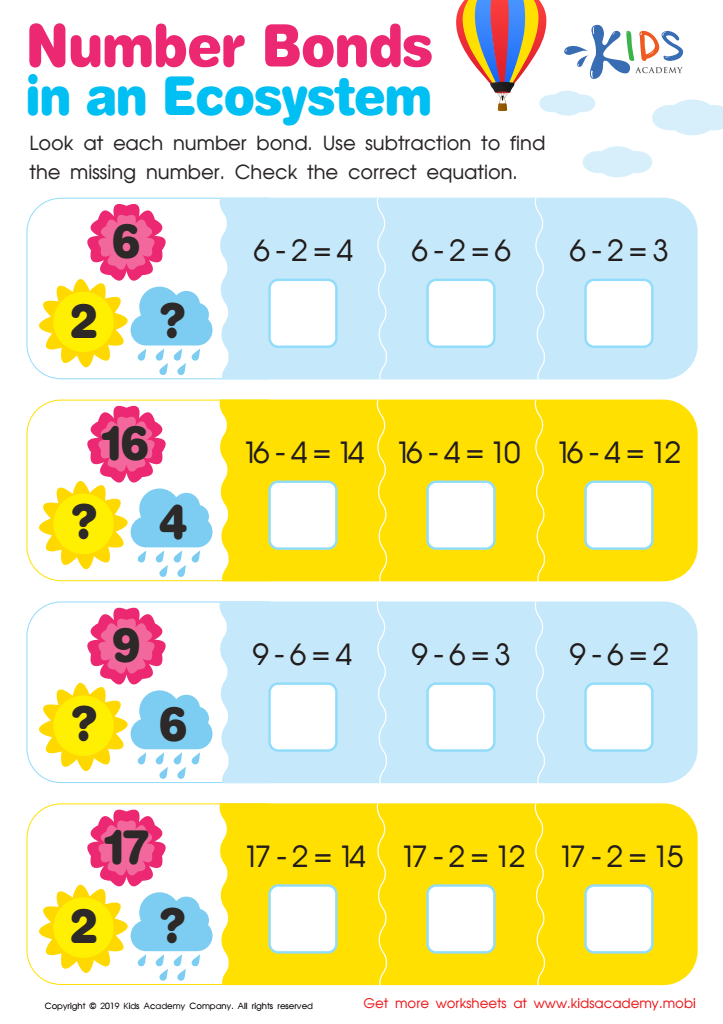

Number Bonds in an Ecosystem Worksheet
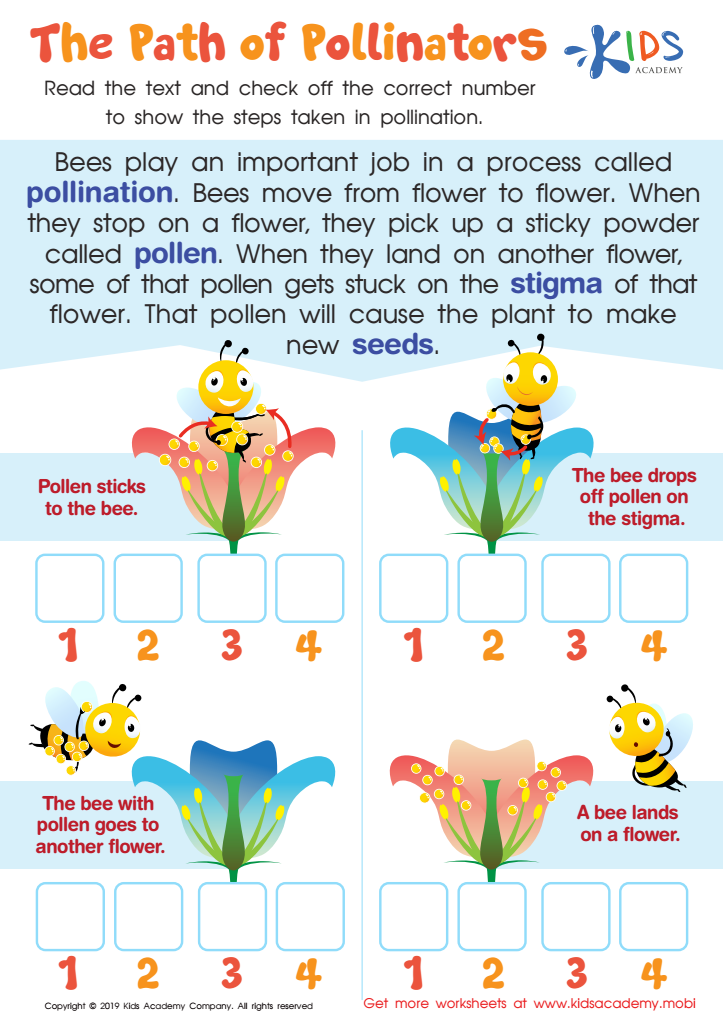

The Path of Pollinators Worksheet
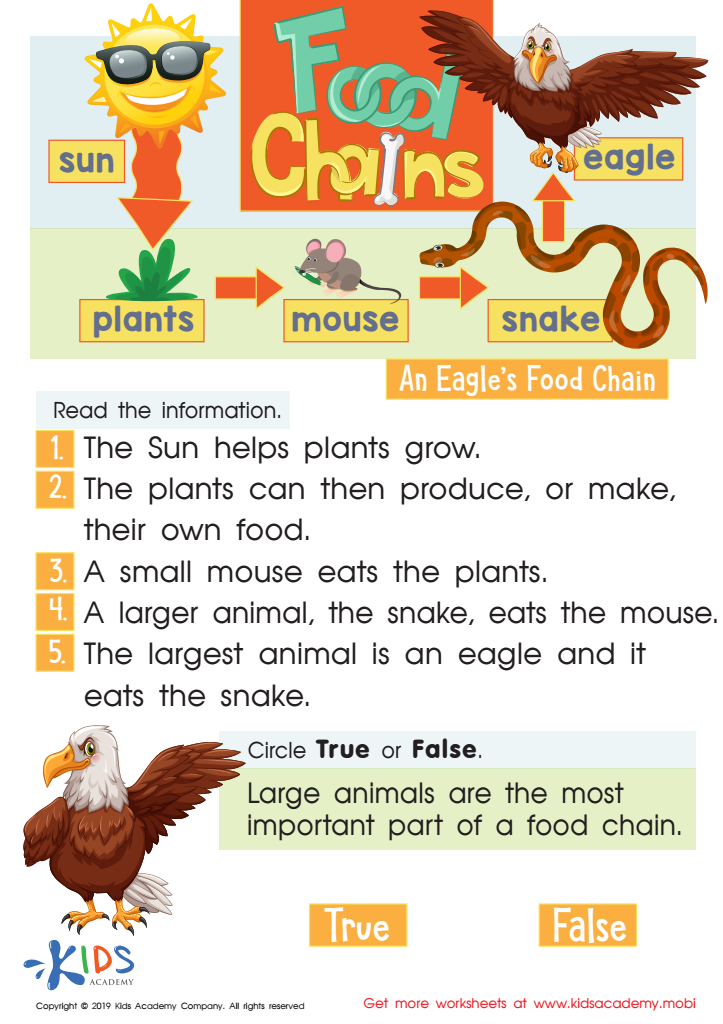

Food Chains Worksheet
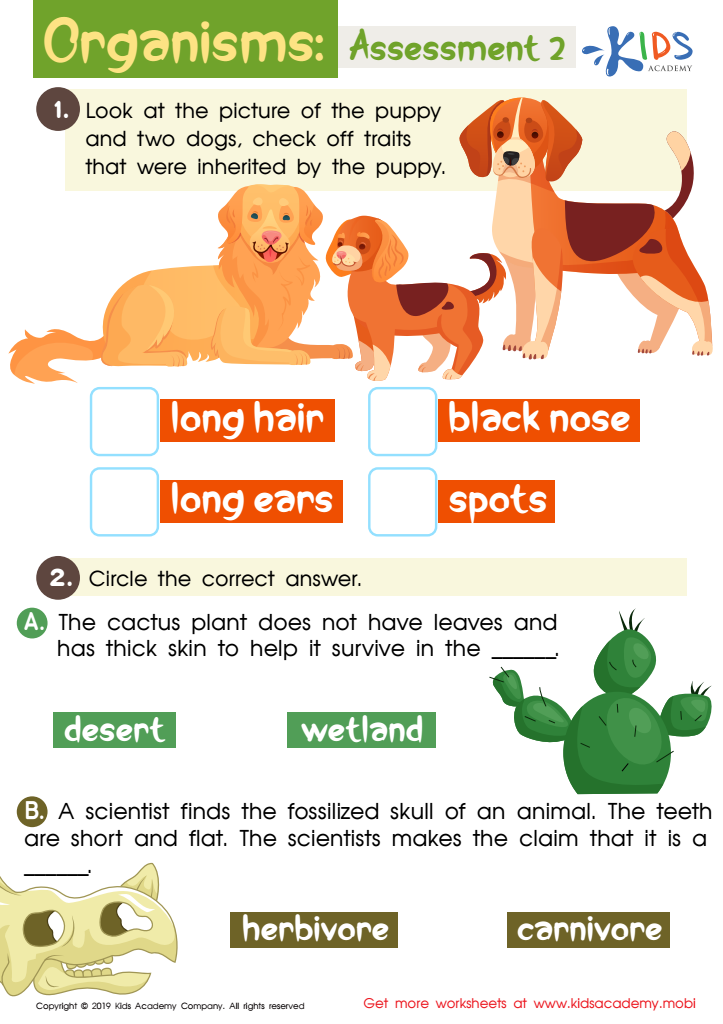

Organisms: Assessment 2 Worksheet
Learning about ecosystems is crucial for children aged 4-8 because it nurtures their curiosity and connection with the natural world. At this age, children are naturally inquisitive; exposing them to ecosystems fosters a sense of wonder and encourages critical thinking. Understanding how different organisms interact within their environments helps them grasp the basics of science, promoting observation and exploration skills critical for future learning.
Educating young learners about ecosystems also instills values of responsibility and stewardship. When children learn about the interdependence of plants, animals, and humans, they begin to appreciate the importance of preserving nature. This awareness cultivates eco-conscious habits, such as recycling and conserving resources, which are essential for a sustainable future.
Moreover, ecosystem education supports social-emotional development. Working on group projects related to nature helps build teamwork, communication, and empathy as children learn to value diverse roles within an environment.
Overall, integrating ecosystem studies into early education equips children with foundational knowledge, empowers them to take care of their surroundings, and fosters a sense of belonging in the world. By nurturing these qualities early, parents and teachers can help raise environmentally aware citizens who understand their impact on the planet.
 Assign to My Students
Assign to My Students





